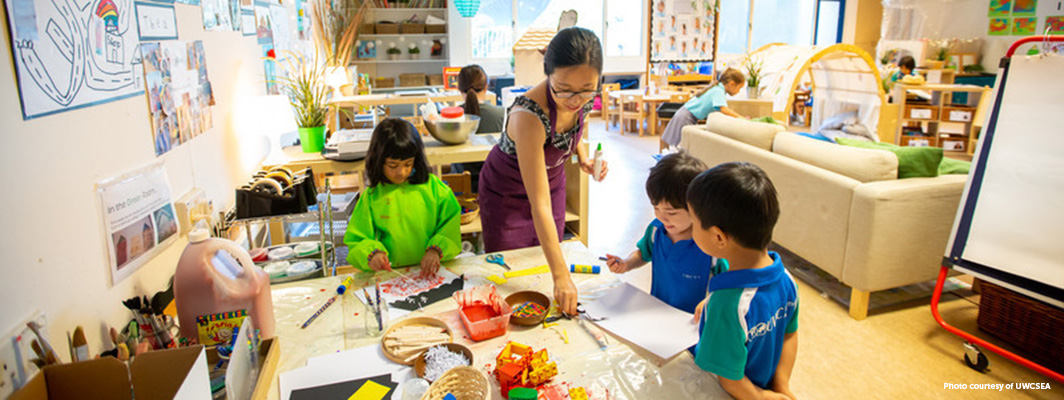
In the same way, the learners in our classrooms need support in making meaning of the disparate knowledge they encounter—those mathematical formulae, that newsfeed on social media, the historical figures and events that define the time periods they study. By inviting our learners to think at the conceptual level, we enable them to apply their ideas to new situations. This allows students to understand how their learning is relevant to their lives both now and in the future.
So as teachers, how do we support learners in thinking conceptually? We do this by developing our competency as concept-based practitioners. We plan for conceptual understanding, explicitly teaching our students how to make connections between ideas. We provide opportunities for our students to investigate significant questions that inspire their curiosity and spark their motivation. We use knowledge and skill learning as a springboard for developing ideas that transfer to unknown contexts. Such a form of learning gives our students ownership over their thinking, while building communities of inquirers.
To build teachers’ competency in concept-based teaching and learning, we’ve developed a micro-credential that recognizes strong planning practices. This micro-credential supports us in planning for transfer of learning in an intentional way. It provides the attributes of strong concept-based planning, connecting the thinking we do before stepping into the classroom with the activities we facilitate with our students. Understanding the link between planning and teaching, the micro-credential provides an opportunity for educators to see how purposeful concept-based planning can lead to enhanced learner outcomes, with a strong focus on understanding.
For our organization, the creation of this micro-credential represents a significant milestone in our development. For the past eight years, UWC South East Asia (UWCSEA) has gone through the journey of writing a K-12 concept-based curriculum in all five areas of our learning program, including outdoor education and service. Likewise, we have transformed classroom practice to support students in thinking at both the factual and the conceptual level. As an organization, the development of this micro-credential afforded us the opportunity to encapsulate important learning we’ve had around concept-based planning.
The world may be complex, and change may be inevitable, but we can equip our learners with transferable knowledge they can apply to unlimited future contexts. Planning for concept-based teaching and learning allows us to design classrooms where conceptual thinking and student agency flourish.
Start earning micro-credentials from UWCSEA and other issuers today by visiting the Digital Promise Micro-credential Platform, and learn more about micro-credentials at digitalpromise.org/microcredentials.

We want to hear from you!
Please take this 5-minute survey and help us serve you better.
